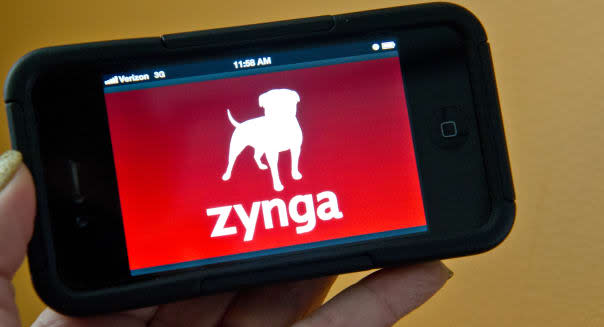Has Zynga Got Its Zip Back?

Barely half a year after Zynga's (ZNGA) IPO in late 2011, the stock market stopped really liking the online games purveyor.
Loss-making quarters piled up while Zynga seemed to have little or no strategy to combat a slide in revenue. Since then, though, Zynga has made some sensible moves at improving its business. Will this be enough to push the company into consistent success?
Making Hay
Zynga's recent results haven't been spectacular, but at least they've trumped expectations. In its recently reported first quarter, the company took in $168 million in revenue, a bit higher than analyst estimates. Net loss met the market's projection, at a penny a share.
That followed a relatively good fourth quarter that saw Zynga beat significantly on top line and deliver a slightly narrower loss than the market expected.
News from the company has been generally positive lately. The managerial structure seems to be developing in the right direction, with CEO Don Mattrick -- formerly the president of Microsoft's (MSFT) interactive entertainment division -- bringing on several seasoned pros to fill top executive positions since joining the company in mid-2013.
Zynga is also getting smarter about acquisitions. This past January, it ponied up $527 million in cash and stock to buy NaturalMotion, a British company that's developed some high-end 3-D technology and produced a pair of popular titles ("CSR Racing" and "Clumsy Ninja").
NaturalMotion seems to have better potential than OMGPOP, the one-trick pony Zynga bought in 2012 for $183 million. OMGPOP made "Draw Something," a fast-growing but limited app that quickly faded from the charts as its novelty wore off. Barely a year-and-a-half later, Zynga shuttered OMGPOP for good.
Farmed Out
At the beginning of Zynga's existence, Facebook (FB) was basically the only means of accessing the company's titles online. In 2012, Zynga derived a steep 81 percent of its bookings and 86 percent of its revenue from Facebook.
That worried investors, and those fears were compounded when that take started to slide. The company's average monthly unique payer bookings topped out at $96 million in Q1 2012, dropping quickly over the subsequent quarters to hit $37 million in Q4 2013.
%VIRTUAL-article-sponsoredlinks%Aside from a general migration by players to mobile games, a good part of this was due to the entry of rival King Digital Entertainment (KING). In 2013 that company made a big splash with its own Facebook game, "Candy Crush Saga." By the middle of that year, thanks almost exclusively to that title, King overtook Zynga as the No. 1 game purveyor on the social media outlet.
There's nothing like a little competition to juice a company's business. Zynga broadened its efforts with new games and started to push online user engagement through its native website and via mobile apps.
It's been a haul, but the effort at broadening seems to be bearing fruit -- "FarmVille," for example, was responsible for 24 percent of online game revenue in 2012, with the next-highest game ("Zynga Poker") taking in 19 percent. The following year the playing field was a little more level, with "Zynga Poker" leading at only 21 percent and the runner-up (fresh title "FarmVille 2") at 17 percent.
Meanwhile, Facebook's grip on the future of Zynga loosened. At the end of 2013, the latter derived 69 percent of its bookings and 75 percent of its revenue from the social media titan.
A Tough Harvest
The improvements are certainly encouraging, but there is much work still to be done. Revenue has lately been better than expected, true, but it's still evaporating. It's declined by almost 50 percent since Q4 2012, when Zynga took in $311 million. And the bottom line is still colored a bright red.
The online gaming segment is a tough one to profit from. Player tastes can shift in an instant -- look what happened when "Candy Crush Saga" appeared on the scene.
Zynga has been making good moves lately; the question is whether those efforts can reverse the revenue skids and return the company to profitability on a consistent basis. If not, then Zynga's game will be over, likely sooner rather than later in this fast-moving business.
Motley Fool contributor Eric Volkman and The Motley Fool own shares of Facebook and Microsoft.


